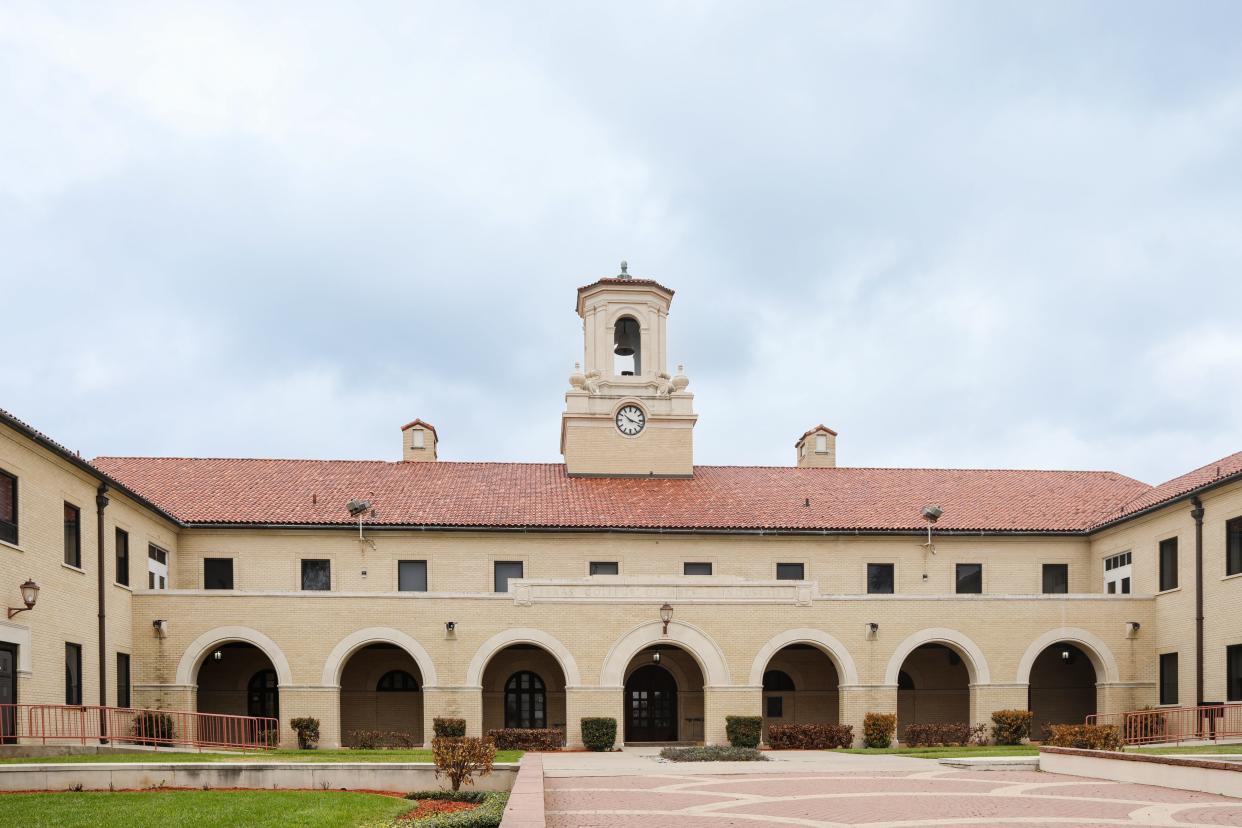Texas A&M University-Kingsville eyes nursing program, community health hub

Texas A&M University-Kingsville plans to take on rural health care needs in South Texas.
During a community address last week, A&M-Kingsville President Robert Vela Jr. Introduced several new community health initiatives, including a new nursing program, a community health hub and a new health-focused college.
“We need to show our students they can still have a very successful career in healthcare serving rural South Texas,” Vela said.
These plans are all in the early stages, but if the university is successful in securing approval, could help train needed health care professionals.
Vela envisions a South Texas health hub on campus, a potential partnership between A&M-Kingsville, Community Action Corporation of South Texas and the Texas A&M School of Pharmacy.
“It’s a way to bring all these partners together to create a center by which we can deliver quality healthcare, not just to students, but to the community,” Vela said. “We know that once we do this health hub and get doctors coming through here from A&M as part of their rotation, I think it’s going to be a game changer for this part of Texas.”
The university currently partners with the Community Action Corporation of South Texas to provide students with health services. A health hub would build upon those efforts. Ann Awalt is the executive director of Community Action Corporation of South Texas.
“We hope to continue this partnership and expand what we’re doing when the health hub is created,” Awalt said. “We could go beyond family practice and offer pediatrics and a wide variety of other services to folks. It would be family practice, pediatrics, we would have some dental services available.”
Awalt said a health hub could also provide a location where medical students could shadow doctors and gain the experience of living and working in a rural area.
In South Texas, Awalt said, a large percentage of the population is uninsured or falls below the poverty line, including children and elderly residents.
“The real significance of this partnership is that it brings medicine to rural areas that may have been overlooked otherwise,” Awalt said.
If the plan goes forward, the university will build a facility on campus, potentially with the help of private partners.
Dr. Asim Abu-Baker is the associate dean for clinical and professional affairs at the Texas A&M School of Pharmacy. Abu-Baker said the pharmacy school could collaborate to potentially offer primary care pharmacy services.
“I think it would be an awesome opportunity for the community and for our students as well to be there and engage with the patients,” Abu-Baker said. “It could also give us an opportunity to practice what we call a primary care pharmacy, which is when pharmacists work with prescribers – physicians, nurse practitioners and physician assistants.”
Taking on a shortage of nurses, the university hopes to launch an RN to BSN program, focusing specifically on rural health care. RN to BSN programs help registered nurses earn a bachelor’s degree in nursing.
“There is a shortage of nurses all over, but even more so in rural parts of Texas, especially South Texas,” Vela said.
According to the American Association of Colleges of Nursing, BSN programs enhance a student’s professional development, prepare nurses for a broader scope of practice and help nurses better understand the cultural, political, economic and social issues that affect patients.
Research compiled by the association also indicates that the demand for nurses is rising, but nursing shortages are projected to spread through 2030.
“It is extremely challenging to recruit and retain physicians, nurse practitioners and RNs in rural areas,” Awalt said.
The university plans to create a College of Nursing and Allied Health Sciences, which would offer students the option to pursue stackable credentials. It would include a nursing program, as well as the university’s existing health programs.
"We’re seeing a big increase in students that are coming to A&M-Kingsville with the desire to major in different allied health fields,” Vela said.
Vela approached the Texas Legislature in the spring in the hopes of getting funding for a bachelor of nursing program. The effort wasn’t successful, but Vela still aims to introduce an RN to BSN program within the next two years.
“We want to use that RN to BSN as an anchor program to bring more allied health programs to A&M-Kingsville,” Vela said.
To move forward with each of these goals, A&M-Kingsville will need approval from the Texas A&M Board of Regents, as well as the Texas Higher Education Coordinating Board and accrediting agencies.
Vela projects that if the university secures approval from the appropriate authorities, it could begin work on these initiatives over the next year and half to two years.
Nueces County weighs in on loss of Christus Spohn emergency medicine residency
Texas A&M University-Kingsville program brings students back to campus to finish degrees
Texas A&M University-Kingsville sees enrollment rebound, focuses on South Texas growth
This article originally appeared on Corpus Christi Caller Times: A&M Kingsville hopes to add nursing program, community health hub

